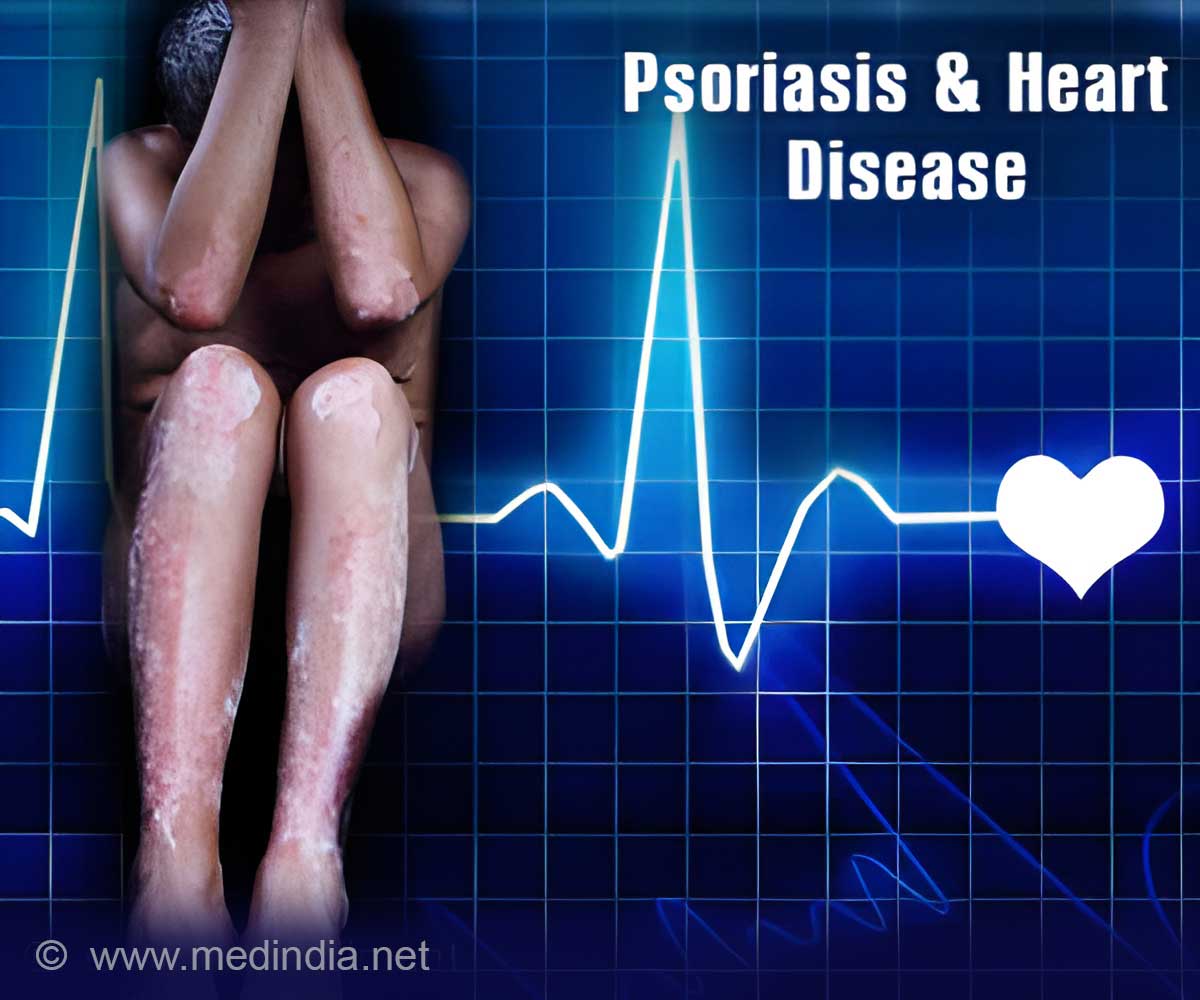The severity of psoriasis, a skin condition, is linked to the amount of inflammation in the blood vessels that increases the risk of heart disease.

Psoriasis affects more than 125 million people, approximately 3% of the world's population. The condition is most common in adults, but kids and teenagers can get it too.
The research "provides strong evidence that what is seen on the outside in terms of skin disease severity is mirrored on the inside in terms of blood vessel inflammation," said Dr. Nehal Mehta, a researcher at the National Heart, Lung and Blood Institute, the third largest Institute of the National Institutes of Health, Maryland, the United States.
The study involved as many as 60 patients with psoriasis (28 men and 32 women, mean age 47 years) and 20 people without psoriasis (13 men and seven women, mean age 41 years). The investigators used a unique scoring method to rate each participant's psoriasis on a scale from mild to severe. Both the psoriasis patients and controls were at low risk of cardiovascular disease.
To assess blood vessel inflammation, the scientists used positron emission tomography - computed tomography (PET/CT) scans. The participants were administrated a radioactive sugar to get a clearer picture of inflamed blood vessels on the scan.
The study used blood tests to find out the mechanisms that might explain the relation between psoriasis and inflamed blood vessels. The results showed that levels of immune cells called neutrophils were higher in individuals with more severe psoriasis.
However, researchers said that the research doesn't completely prove that having psoriasis causes inflammation of the blood vessels. Still it does give scientists more clues on psoriasis. As of now, the skin condition has no cure and current treatments mainly focus on managing the condition.
There have been some mechanism studies in the past, but none of them considered the activity of neutrophil. However, this study gives new insights into psoriasis that could be used to develop treatments for the condition.
The study also did not prove that treating psoriasis could reduce the risk for cardiovascular diseases. Dr. Mehta said that patients with psoriasis must maintain a healthy lifestyle to prevent heart diseases.
A heart-healthy lifestyle includes staying active, avoiding smoking and eating a balanced diet. People with psoriasis should check for their heart disease risk factors, such as obesity, diabetes, high blood pressure, and high cholesterol.
Dr. Kirsner also agrees that individuals with psoriasis should be aware of their cardiovascular disease risk.
Severe psoriasis has been associated with conditions such as hypertension, the metabolic syndrome and liver disease. Therefore, it is necessary to both care and treat psoriasis closely and efficiently.
"Ten or 15 years ago, we'd tell patients that they didn't have to treat [their psoriasis], but now we say there's a risk associated with that decision," Dr. Kirsner said.
References:
1. Haley B. Naik, Balaji Natarajan, Elena Stansky, Mark A. Ahlman, Heather Teague, Taufiq Salahuddin, Qimin Ng, Aditya A. Joshi, Parasuram Krishnamoorthy, Jenny Dave, Shawn M. Rose, Julia Doveikis, Martin P. Playford, Ronald B. Prussick, Alison Ehrlich, Mariana J. Kaplan, Benjamin N. Lockshin, Joel M. Gelfand, Nehal N. Mehta2. doi: 10.1161/ATVBAHA.115.306460
3. http://atvb.ahajournals.org/content/early/2015/10/08/ATVBAHA.115.306460.abstract
4. https://en.wikipedia.org/wiki/Psoriasis
5. http://www.nhlbi.nih.gov/
Source-Medindia














